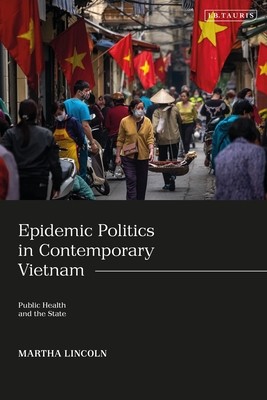
- We will send in 10–14 business days.
- Author: Martha Lincoln
- Publisher: Bloomsbury Academic
- ISBN-10: 075563621X
- ISBN-13: 9780755636211
- Format: 15.6 x 23.4 x 1.2 cm, softcover
- Language: English
- SAVE -10% with code: EXTRA
Reviews
Description
Through a tumultuous 20th-century period of revolution and foreign wars, Vietnam's public health system was praised by international observers as a "bright light in an epidemiologically dark world," standing out for its accomplishments in infectious disease control. Since the country's transition to a "market economy with socialist orientation" in the mid-1980s, however, some of these achievements have been reversed as the "renovation" of national systems for welfare and health leaves gaps in the social safety net. A series of cholera outbreaks that spread through Northern Vietnam in 2007-2010 revealed the paradoxes, contradictions, and challenges that Vietnam faces in its post-transition period.
This book presents an anthropological analysis of the political, economic, and infrastructural inputs to these epidemics and suggests how the most commonly repeated accounts of disease spread misdirected public attention and suppressed awareness of risk factors in Vietnam's capital. Drawing a parallel to the experience of novel coronavirus in Asia and beyond, this book reflects on how political priorities, economic forces, and cultural struggles influence the experience and the epidemiology of infectious disease.EXTRA 10 % discount with code: EXTRA
The promotion ends in 20d.14:03:11
The discount code is valid when purchasing from 10 €. Discounts do not stack.
- Author: Martha Lincoln
- Publisher: Bloomsbury Academic
- ISBN-10: 075563621X
- ISBN-13: 9780755636211
- Format: 15.6 x 23.4 x 1.2 cm, softcover
- Language: English English
Through a tumultuous 20th-century period of revolution and foreign wars, Vietnam's public health system was praised by international observers as a "bright light in an epidemiologically dark world," standing out for its accomplishments in infectious disease control. Since the country's transition to a "market economy with socialist orientation" in the mid-1980s, however, some of these achievements have been reversed as the "renovation" of national systems for welfare and health leaves gaps in the social safety net. A series of cholera outbreaks that spread through Northern Vietnam in 2007-2010 revealed the paradoxes, contradictions, and challenges that Vietnam faces in its post-transition period.
This book presents an anthropological analysis of the political, economic, and infrastructural inputs to these epidemics and suggests how the most commonly repeated accounts of disease spread misdirected public attention and suppressed awareness of risk factors in Vietnam's capital. Drawing a parallel to the experience of novel coronavirus in Asia and beyond, this book reflects on how political priorities, economic forces, and cultural struggles influence the experience and the epidemiology of infectious disease.

Reviews